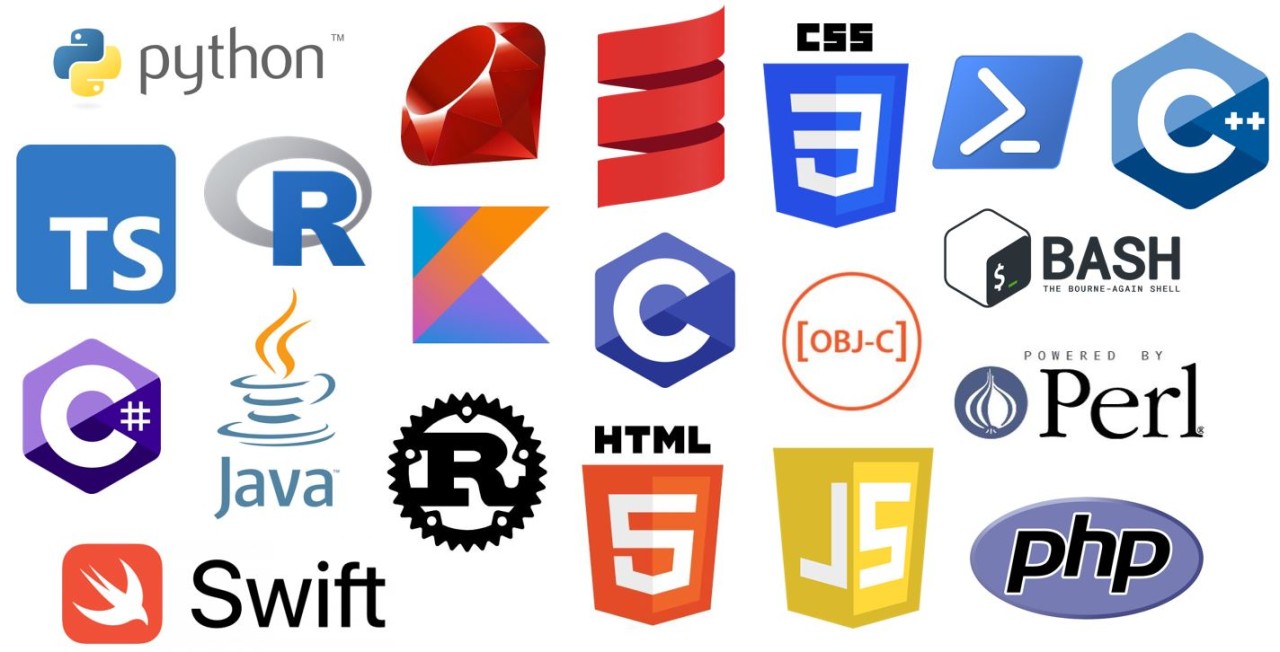The best programming languages to learn depend on your goals, whether you’re interested in web development, data science, mobile apps, or other fields. Below are some of the most popular and widely used programming languages across different domains, along with their strengths and use cases:
1. Python
- Use Cases: Data science, machine learning, web development, automation, artificial intelligence (AI), scripting.
- Why It’s Popular: Python is known for its simplicity and readability, making it a great choice for beginners. It’s widely used in data science, machine learning, and web development with frameworks like Django and Flask.
- Strengths:
- Simple syntax and easy to learn.
- Extensive libraries for data analysis, AI, and web development (e.g., Pandas, TensorFlow).
- Large community support.
- Notable Applications: Google, Dropbox, Instagram.
2. JavaScript
- Use Cases: Web development (both frontend and backend), mobile app development (with frameworks like React Native), game development.
- Why It’s Popular: JavaScript is the language of the web, used for building interactive websites. With the advent of Node.js, it’s also used for backend development.
- Strengths:
- Essential for frontend web development.
- Supports full-stack development (frontend + backend with Node.js).
- Huge ecosystem of frameworks (React, Angular, Vue).
- Notable Applications: Facebook (React), LinkedIn, Netflix.
3. Java
- Use Cases: Enterprise applications, Android app development, large-scale systems, web development.
- Why It’s Popular: Java is a versatile, platform-independent language widely used in enterprise environments. It powers Android apps and large-scale systems.
- Strengths:
- Object-oriented programming language.
- Platform-independent (write once, run anywhere with JVM).
- High performance, scalability, and security.
- Notable Applications: Android apps, Twitter, LinkedIn, Uber.
4. C/C++
- Use Cases: System programming, game development, high-performance applications, embedded systems.
- Why It’s Popular: C is a foundational language, and C++ builds on it with object-oriented features. Both are used for low-level programming and high-performance applications like game engines.
- Strengths:
- High performance and control over system resources.
- Suitable for systems that require hardware interaction.
- C++ offers object-oriented features while maintaining C’s performance.
- Notable Applications: Operating systems (Linux, Windows), game engines (Unreal Engine), browsers (Chrome).
5. C# (C-Sharp)
- Use Cases: Game development (Unity), enterprise applications, web applications (ASP.NET), Windows applications.
- Why It’s Popular: C# is developed by Microsoft and widely used for building Windows applications and games using Unity, a popular game engine.
- Strengths:
- Great for game development with Unity.
- Object-oriented, easy to learn for those familiar with C/C++ or Java.
- Powerful for building enterprise applications and web services.
- Notable Applications: Microsoft products, Unity games, Visual Studio.
6. Swift
- Use Cases: iOS and macOS app development.
- Why It’s Popular: Swift is the primary language for developing Apple iOS and macOS apps, known for its performance and safety features.
- Strengths:
- Modern, fast, and safe language for mobile app development.
- Easy to learn, especially for beginners in app development.
- Backed by Apple, with strong community and tooling support.
- Notable Applications: iOS apps (Uber, Airbnb, Twitter).
7. Ruby
- Use Cases: Web development, automation, scripting.
- Why It’s Popular: Ruby is known for its simplicity and elegance, especially when paired with the Ruby on Rails framework, which simplifies web development.
- Strengths:
- High productivity with Ruby on Rails.
- Easy to learn and readable syntax.
- Great for startups and rapid application development.
- Notable Applications: GitHub, Shopify, Airbnb.
8. PHP
- Use Cases: Web development (backend), content management systems (CMS).
- Why It’s Popular: PHP is one of the most widely used languages for server-side web development. It powers many popular content management systems like WordPress.
- Strengths:
- Easy integration with databases and web servers.
- Great for building dynamic websites and content-heavy platforms.
- Huge community and extensive libraries.
- Notable Applications: Facebook (initially), WordPress, Wikipedia.
9. Go (Golang)
- Use Cases: Cloud computing, distributed systems, web development, microservices.
- Why It’s Popular: Developed by Google, Go is known for its simplicity, efficiency, and performance. It’s a go-to language for building scalable, high-performance systems.
- Strengths:
- Fast execution and efficient concurrency handling.
- Simple, clean syntax.
- Strong standard library for networking, web development, and system programming.
- Notable Applications: Docker, Kubernetes, Uber.
10. Kotlin
- Use Cases: Android app development, web development, cross-platform mobile development.
- Why It’s Popular: Kotlin has become the preferred language for Android development, replacing Java due to its more modern features and interoperability with Java.
- Strengths:
- Fully interoperable with Java.
- Concise, modern, and safer than Java (fewer null-pointer exceptions).
- Supported by Google for Android development.
- Notable Applications: Android apps (Pinterest, Trello), Basecamp.
11. R
- Use Cases: Data analysis, statistics, machine learning, data visualization.
- Why It’s Popular: R is a popular language in the data science community, especially for statistical computing and data visualization.
- Strengths:
- Extensive libraries for data analysis (dplyr, ggplot2).
- Highly used in academic research and statistical computing.
- Strong support for data visualization and modeling.
- Notable Applications: Statistical analysis in academia, healthcare, and finance.
12. SQL (Structured Query Language)
- Use Cases: Database management, data querying, data analysis.
- Why It’s Popular: SQL is essential for working with databases, allowing developers to store, retrieve, and manipulate data in relational databases.
- Strengths:
- Universal language for managing relational databases.
- Necessary for backend development and data analysis.
- Highly efficient for querying large datasets.
- Notable Applications: Database management in almost every company (MySQL, PostgreSQL, Oracle).
Conclusion
- For Web Development: JavaScript, Python, Ruby, PHP.
- For Mobile Development: Swift (iOS), Kotlin (Android), Java, C# (Unity for games).
- For Data Science and AI: Python, R.
- For System Programming: C, C++, Rust.
- For Enterprise Applications: Java, C#, Go.
Choosing the right language depends on your project goals, the industry you’re targeting, and your level of experience.






